By Rick VanSickle
Standing at the centre of Taylor Emerson’s 22-acre vineyard in Beamsville, one is struck by the precipitous determination to turn a vision into reality with little or no experience in the industry.
But here we are; plump bunches of grapes glistening and ripening in the heat of summer. Nearby, a partially finished barn winery is quickly being finished to receive the 2022 harvest. There are hopes and dreams in the air of what can be, of what will be a bright future. Welcome to Niagara’s newest winery and estate vineyard: Black Bank Hill.
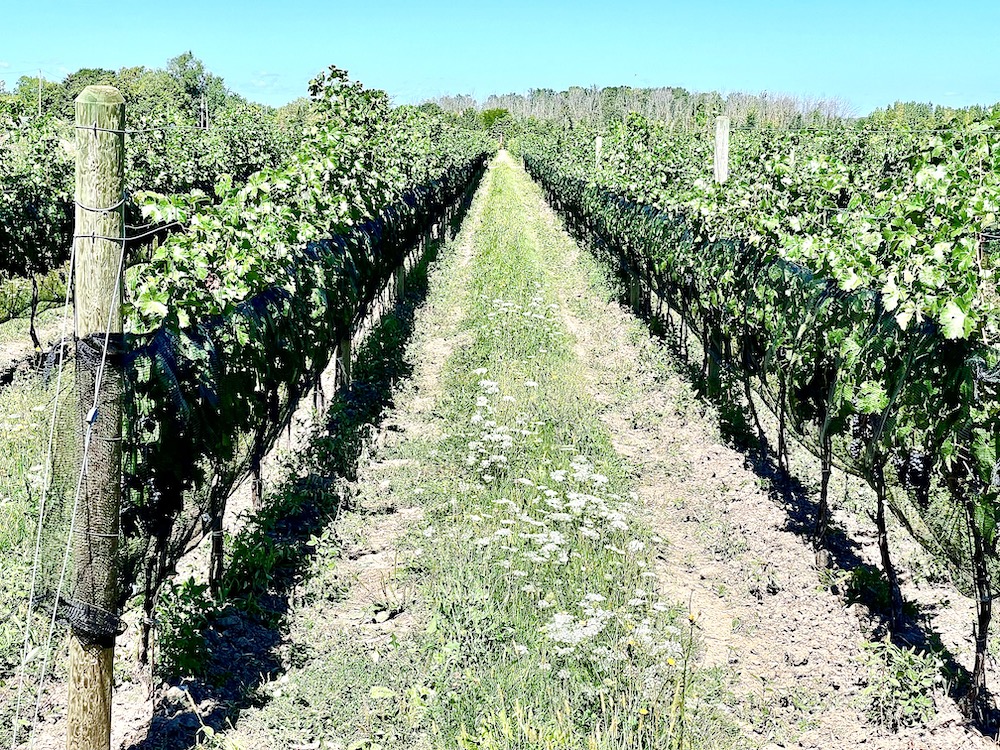
For Emerson, it was a mid-life about face. The new path began in 2016, when at 45 years old he left a lucrative digital media career in London, England, to chase a new life in wine. Wine was already in his blood, but Emerson was thinking big, REAL big. With a school nearby that provided WSET courses, he quickly completed the work. As he explained to Robbie Raskin, owner of Archives Wine and Spirits Merchants in downtown St. Catharines in a Q&A post recently: “I signed up for a two-week Level 3 course and by the end of it, the notion I would make a leap into wine was well set. My main interest was in winemaking. I am a product person by nature and wanted to have my hands on the process. I was 45 and it was a ‘now or never’ type of decision.”
Following the WSET courses, it was on to more practical studies and Emerson enrolled in the two-year viticulture and oenology diploma at Plumpton College in Sussex, the only English-speaking wine school in Europe. “I was not thinking of moving back home to Canada at that time as gaining wine experience in Europe seemed natural,” he told Raskin. “One morning, heading down to Sussex on the train, I was reading some excellent articles on terroir that the teacher had assigned, and it crystalized the idea that people are both a part of the terroir’s influence on wine as well as at the same time being influenced by terroir, that there is a larger connection, a triangle. It became important that, being Canadian, I make wine in Canada and would move back to Ontario. It was a combination of the craft itself, terroir, identity, and being part of a developing market that I could help move the needle on that sealed it for me.”
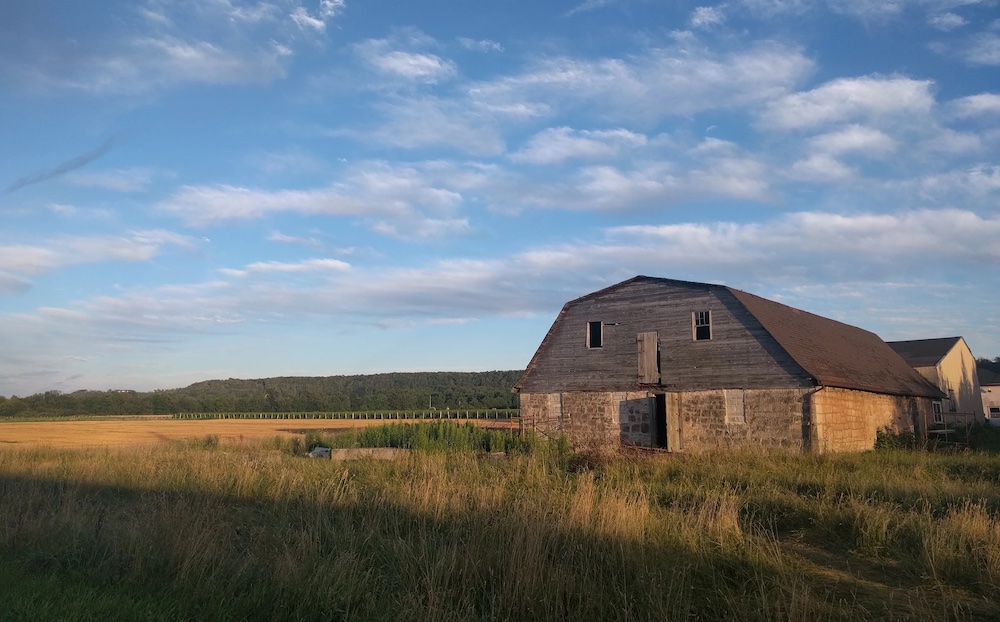
His search led him to the Niagara Escarpment, and more precisely the old Trach family fruit farm located at 4247 Sann Road, just north of Old Highway 8 in the Lincoln-Lakeshore sub-appellation. Emerson purchased the 22-acre farm that was formerly planted to plums, grapes and cherries etc., but sat fallow for a decade. He planted 19 acres of the farm to grapes from scratch. “I didn’t want to inherit a vineyard,” he told Wines In Niagara. “I knew I wanted to come home and do this.”
His plantings run the gamut of Pinot Gris, Pinot Noir, Chardonnay, Viognier, Cabernet Sauvignon, Chenin Blanc, Syrah, Gewurztraminer, Marsanne and Roussanne spread across four distinct blocks and planted to numerous clones in predominantly heavy clay soils which moderate vigour and increase quality but retain water and nutrients. Emerson also purchased an adjoining farm for future growth.
Meanwhile, he and his team, mainly winemaker Jonathan McLean (below), are in the process of building a modern barn to accommodate a tasting and retail store, tanks and winemaking equipment that arrive daily in the hopes of producing wines for the first time at the estate from the 2022 vintage. “The vision was always to have a really small winery and make really good wine under our control,” he said. “We’re just excited to make the wines here and move the needle forward.” The 2020 estate wines will be released next year, with the first three wines from the Black Bank Hill Vineyard, all reds: Syrah, Cabernet Franc, and a Merlot-based blend, and made off-site.

McLean, who is Emerson’s cousin, was lured back to Niagara as Black Bank Hill’s first winemaker. He spent 12 years in the Okanagan Valley making wine at Culmina, LaStella, Tantalus and Cedar Creek among others.
And then there’s the quirky name, Black Bank Hill. The name stems from his roots growing up on a high point of land on the Niagara Escarpment near Creemore. Three words popped up on a local map, Black Bank Hill, and Emerson knew he had found his moniker. He explained his reasoning to Raskin this way: “It’s a reminder of how the geography of the escarpment defines us and connects us as southern Ontarians while also being the raison d’être for wine growing in Niagara. I’ve always felt, like many of us, quite connected to our land and country, largely because of the nature we are so fortunate to be surrounded by, and wine is perhaps the perfect expression of how geography defines and forms our identity.”
I tasted the first Black Bank Hill estate wine and three vineyard sourced wines with Emerson and McLean at the gorgeous new home built by Emerson at the edge of the vineyards recently. The wines, aside from the rosé, are available here on the website or at the Archives Wine and Spirits in store or the website here. Here is what I liked:
NOTE: The wines below were produced virtually for Emerson while they await the various approvals for manufacturing wine at the estate.
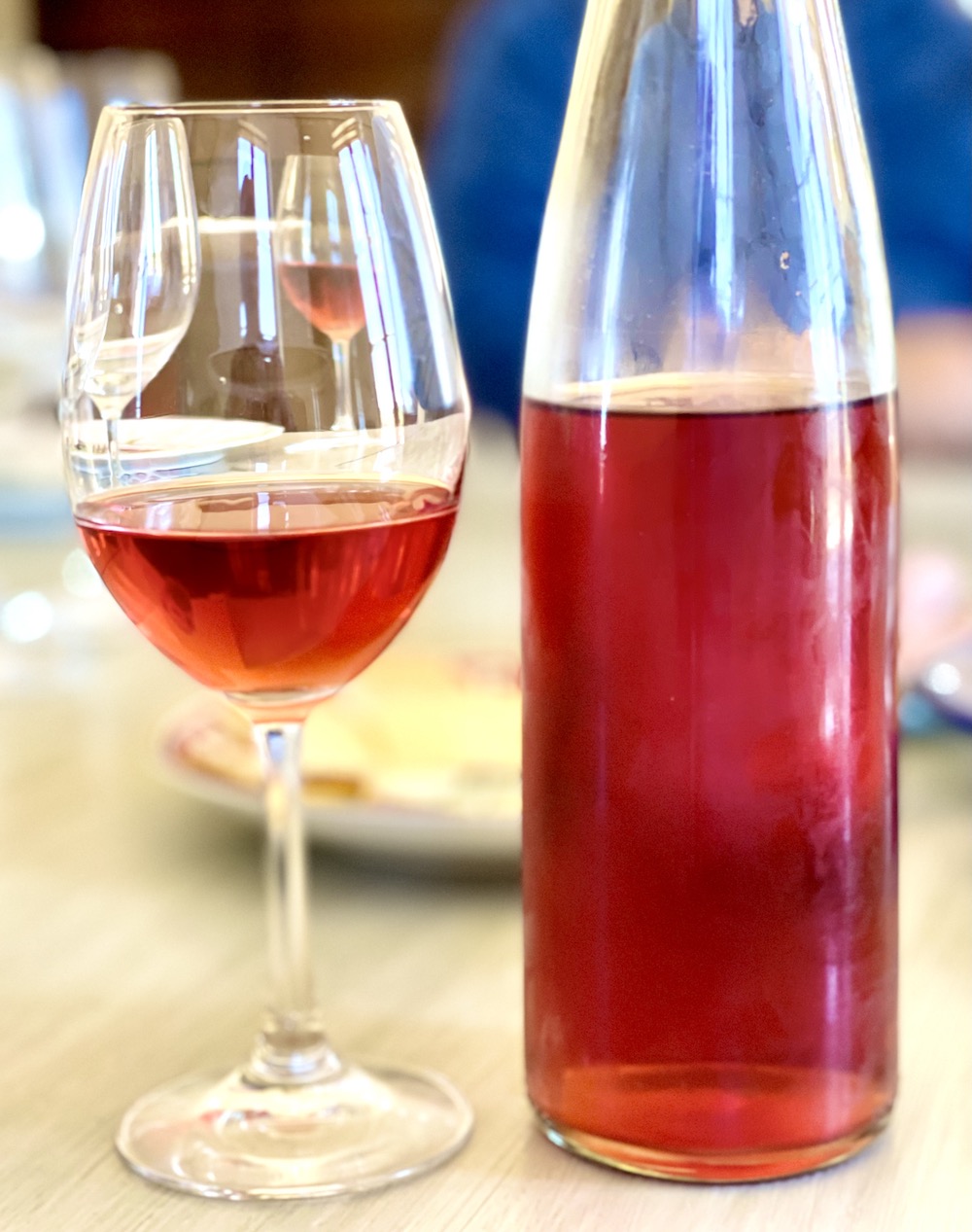
Black Bank Hill Rosé 2021(90 points) — This will be the first estate wine released by Black Bank Hill once the label is approved by VQA. No price has been set. It’s a blend of mostly Cabernet Franc and a bit of Merlot. There was 24 hours of skin contact, wild fermented and bottled unfiltered and unfined. The goal for Emerson and McLean was to produce a bolder, more Tavel-style rosé. “We were looking for something more food friendly,” Emerson said. It shows a darker salmon colour in the glass with a nose of earthy/brambly red berries, a touch of cassis, complementing herbaceous notes and beet root. It’s made in a super dry style with tart raspberry/cherry notes on the palate, light tannins offering a bit of structure and complexity, anise, dried herbs, and a fresh, zesty finish.
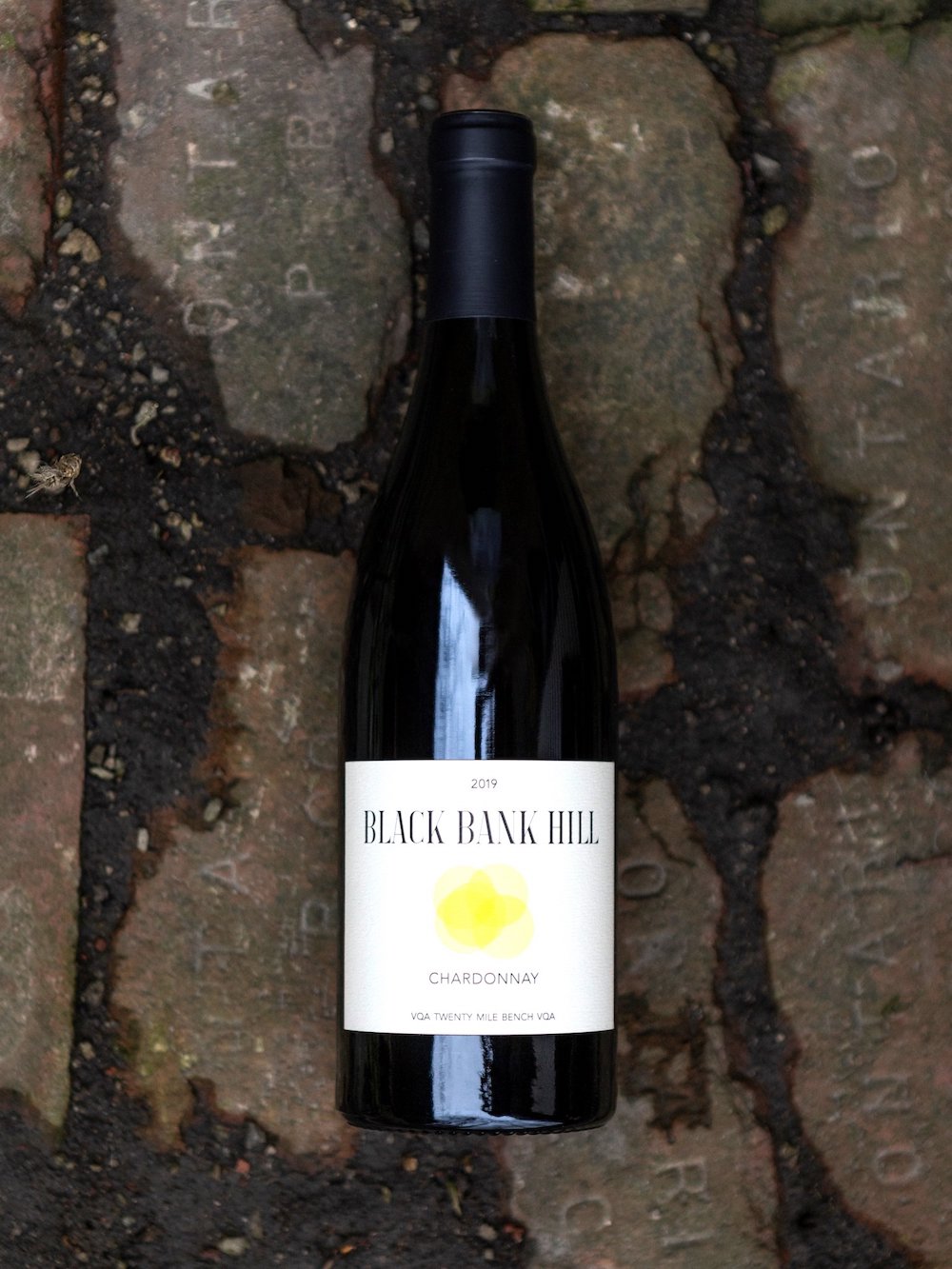
Black Bank Hill Chardonnay 2019 ($36, all wines available on the website or Archives Wine and Spirits, 93 points) — The fruit was sourced from venerable Foxcroft Vineyard on the Twenty Mile Bench. It was wild fermented and aged in a combination of new and old French oak barrels. The stony/minerally notes peek through the oak nuances on the nose with fresh pear, apple slices, bergamot, and spices. It has a flinty take on the palate with lovely orchard fruits, lemon curd, enticing spice notes and all nicely balanced through a lively finish.
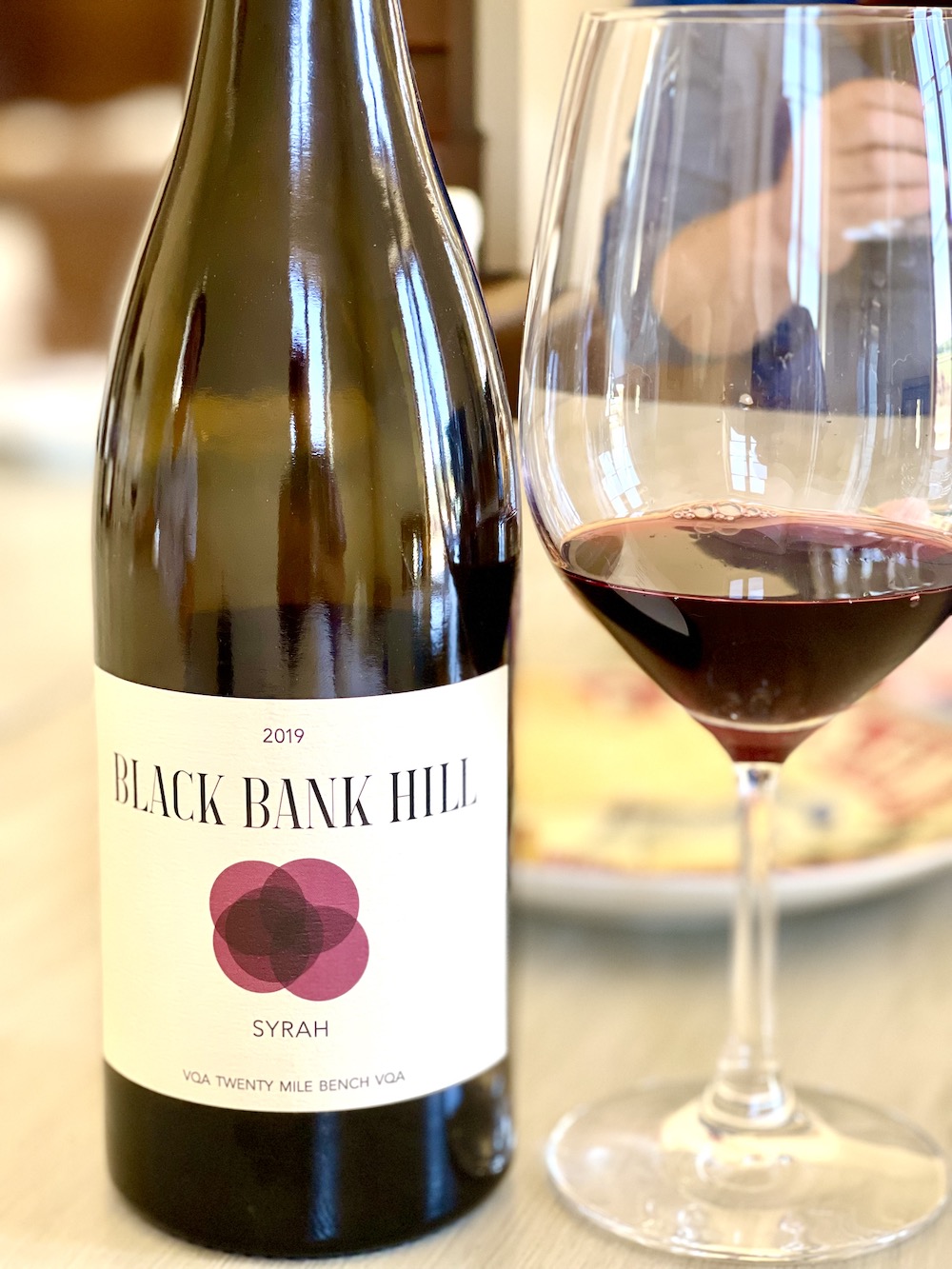
Black Bank Hill Syrah 2019 ($38, 92 points) — Sourced from the Wismer-Parke Vineyard on the Twenty Mile Bench, this Syrah was aged in all neutral French oak barrels. It has a peppery, savoury nose of wild red berries, cassis, earthy/smoky notes with rich spices and a meaty edge. It has mouth-filling tannins on the palate with brambly raspberries, anise, black peppercorns, a leather note, integrated savoury spices and juicy acidity fuelling the back end.
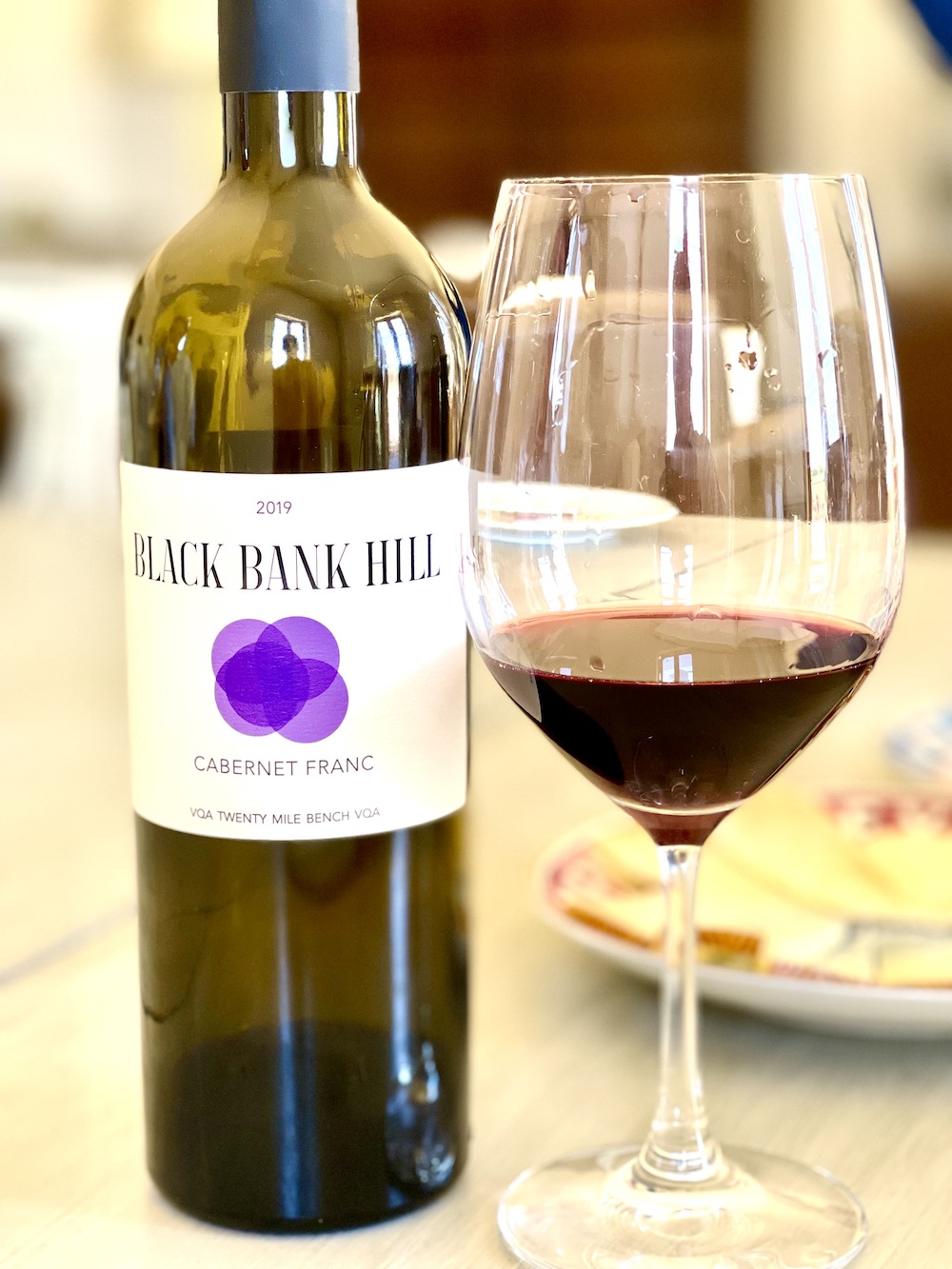
Black Bank Hill Cabernet Franc 2019 ($34, 91 points) — It was back to Foxcroft for this Cab Franc that has an earthy, slightly reductive nose followed by earthy red berries, herbs, anise, and savoury spices. There are some earthy/smoky notes on the palate with an array of wild berries, anise, stewed herbs, medium+ tannins and enticing spice notes on the lifted finish.


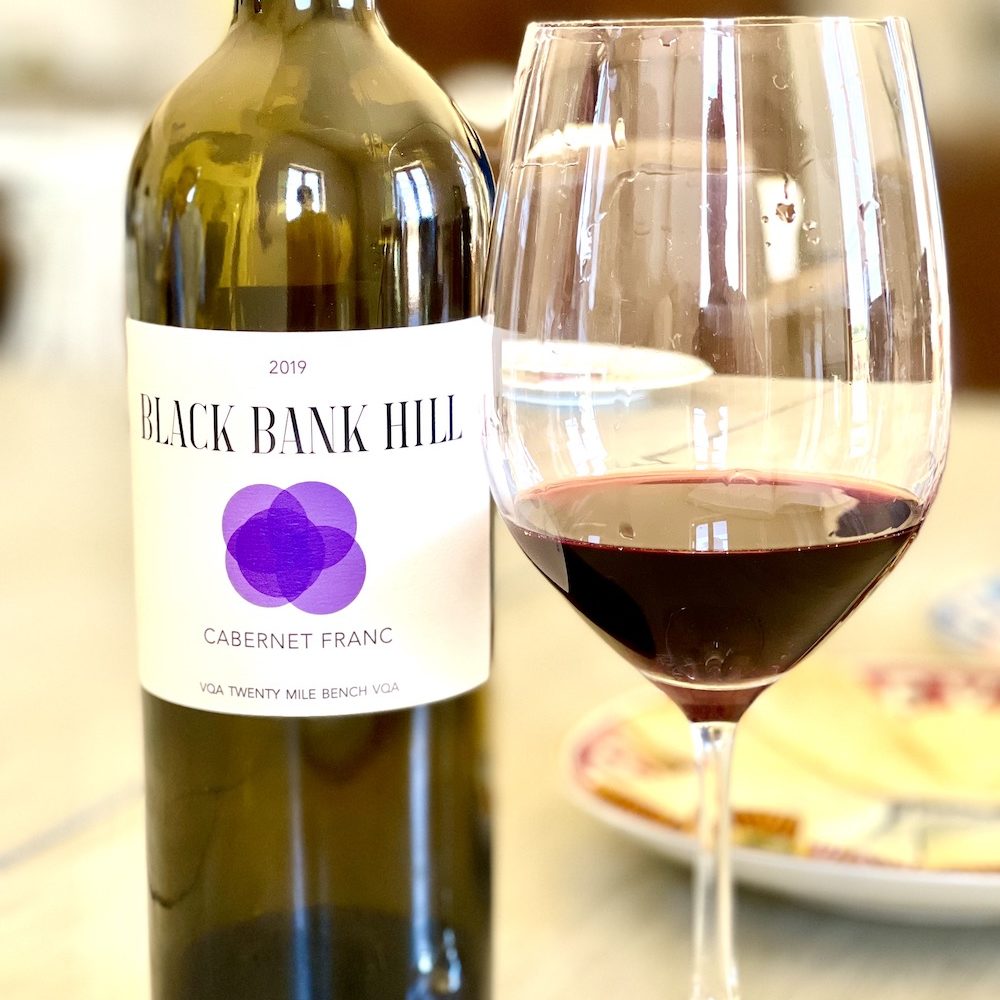




Comment here